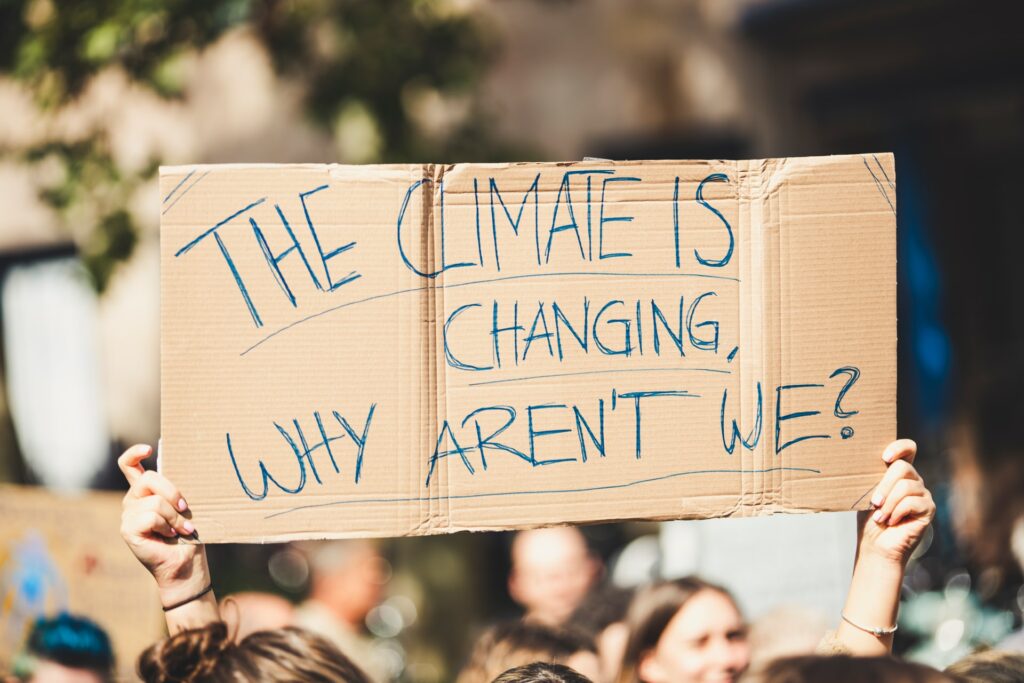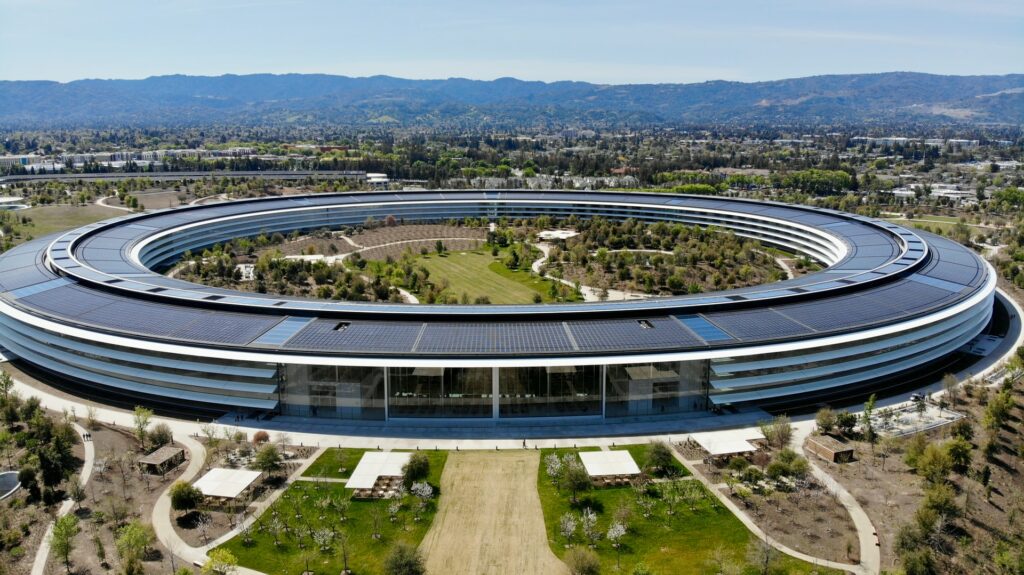Why ‘Earth Day’ matters to your employees — and how big tech is embracing sustainability
Global leaders are speaking up, and HR needs to do the same.
Why You Should Care
65% of employees would rather work for a company with a strong climate pledge.
Workers want their employers to be aligned with personal values and see that they are taking action.
Pressure on the big tech billionaires to lead by example is growing from employees and consumers.
This week’s global Earth Day summit saw US President Joe Biden announce new plans to tackle the climate crisis and urge other global countries to do the same.
Biden set a new goal on cutting greenhouse gas emissions, pledging that by 2030 the US would slash them by 50-52% from record-high 2005 levels.
Claiming that “the science is undeniable,” Biden made the announcement during his global climate summit kicking off on Earth Day, with 40 world leaders taking part in the virtual gathering, including major economies like China, India, the UK, and Russia.
This reflects an emerging trend for workplaces and organizations to do their part. Sustainability pledges by businesses are becoming an increasingly important part of recruiting talent who see this as a priority for their employer.
A recent survey by Reuters found that two-thirds (65%) of respondents were more likely to work for a company with strong environmental policies. Climate change, human rights, and social equity are all issues of growing importance, especially for millennial employees, who now make up the majority of the workforce.

These internal demands for climate-positive action are forcing a transformation of workplace culture.
Gone are the days of simply writing aspirational sustainability reports and not integrating them into the DNA of business operations.
Workers are raising their voices and flexing their individual agency to speak up and demand transformative, tangible change.
It’s not simply a passive desire for management to change either; 63% of employees expressed the desire to learn more green skills so that they can become more valuable in the workplace.
At this week’s summit, UK Prime Minister Boris Johnson called President Biden’s announcement about cutting US greenhouse gas emissions “game-changing”.
“We can do this together across the world. It’s going to mean the richest nations coming together and exceeding the $100bn commitment they already made in 2009,” he said.
Johnson ended his speech by saying “we can build back better, by building back greener”, referring to the job creation that can come with combatting climate change.
Meanwhile being green at work can take many forms and the emphasis is growing to increase these processes.
It’s estimated a fifth of all waste is generated by businesses, and an astonishing 60% of all waste in workplace rubbish bins could be recycled.
Some organizations prioritize sustainable office design and incorporate more plants; others will move to renewable energy suppliers or become ISO 14001 certified (underpinned by reduce, reuse, and recycle principles).
There is a growing group of green startup companies whose very mission is to produce environmentally friendly products or services themselves.
But it’s big tech giants who (as is many areas) are leading the charge here by taking action to clean up their image. And the expectation on them by customers, consumers and other business leaders to set a high standard is ever growing.
In 2019 more than 1,000 Google employees publicly called on their employer to reduce its contributions to climate change, including a commitment to zero greenhouse gas emissions by the year 2030.

A letter from workers at Google came in the wake of a growing movement by big tech employees pushing their employers to reduce the industry’s contribution to climate change and thousands joined Amazon employees in a large global strike on climate issues.
So what are they doing now?
Just last week Facebook announced it had reached net zero emissions, paving the way for it to achieve its wider target of net zero emissions across its entire supply chain by 2030.
The social network said it had reduced its greenhouse gas emissions by 94% over the past three years, and its operations were now supported by 100% renewable energy.
Facebook said it was working towards a net zero target for emissions indirectly created by Facebook’s activities—like business trips—by 2030. Facebook also said it recognizes the Science Based Targets initiatives, to which it has committed in September, though it has yet to submit targets.
A large focus of Facebook’s sustainability efforts is on renewable energy. The company boasted about being the largest corporate buyer of renewable energy in 2019, a title to which it was beaten later, first by Google and then Amazon, the current record holder—but it says it plans to invest in “carbon removal projects and nature-based solutions.”
Microsoft
Microsoft’s sustainability pledges run through its internal processes and external products. By 2023, 70% of Microsoft’s massive data centers will run on renewable energy. In January 2020 they announced the company was working to be carbon negative by 2030 and to remove its historical carbon emissions by 2050. Microsoft is also a signatory to Amazon’s Climate Pledge. Ex-Microsoft boss Bill Gates is also one of the world’s most outspoken billionaires when it comes to climate change investment and philanthropy—he’s even written a bestselling book on this topic, How To Avoid A Climate Disaster.
Apple
All of Apple’s operations run on fully renewable energy, and everything about its products, from the materials to packaging, are designed to have minimal environmental impact.
Assembly sites for Apple’s products are certified Zero Waste to Landfill, and together with their suppliers, they’ve worked to reduce greenhouse gas emissions by more than 466,000 metric tons, which is equal to 100,000 cars being off the road for one year.

Dell
Dell’s sustainability efforts have been successful on all fronts.
It has used 100 million pounds of recycled plastic in its products, reached its goal of having 90% of its waste diverted from landfills, and is developing sustainably sourced or recycled packaging.
Dell is well on its way to reducing its greenhouse gas emissions by 40%. Dell also prioritizes social initiatives, and its employees have given more than 5 million hours of service to communities around the world.
HP
HP is reached its goal of 100% zero deforestation with HP-branded paper two years before its target.
In recent years, HP reduced its carbon footprint by one-third and ensured 30% of the plastic in its printers is repurposed from other items.
HP’s next goal is to increase the recycled content of plastics across its print and personal systems portfolio to 30% by 2025.
Lenovo
Lenovo’s sustainability efforts include helping the environment and social causes around the world.
Their offices and factory facilities are all certified to meet leading sustainability standards.
Lenovo is also working towards a 40% decrease in greenhouse gas emissions by 2021.
They design all packaging to be thin and lightweight by using materials like sugar cane and bamboo, which are significantly lighter than plastic and other alternatives.
Amazon
Amazon’s Climate Pledge, which has been signed by 104 other corporations so far, aims to achieve net-zero carbon emissions by 2040.
Amazon also set up a $2 billion Climate Fund to invest in new technologies needed to build a zero-carbon economy.
The company claims to be the world’s largest buyer of renewable energy, and it set up internal targets like deploying 100,000 electric vehicles for its deliveries by 2030 and supporting carbon reducing technologies in cloud computing.
Meanwhile, Andrew Steer, a leading authority on international climate change policy, was recently poached by Amazon founder Jeff Bezos to lead the Bezos Earth Fund, one of the world’s largest climate philanthropies, pledging to spend $10 billion by 2030 to address climate change.
It’s clear that a revived focus on employee engagement will see more companies follow this lead. For HR, the emotional commitment and motivation for a workforce to remain committed to the business and its vision and goals are crucial. And this is a topic that is not ready to be made extinct.
Sign up to the UNLEASH Newsletter
Get the Editor’s picks of the week delivered straight to your inbox!

Head of Special Projects at UNLEASH
Jennifer Dunkerley is an award-winning editor and senior digital content manager.
